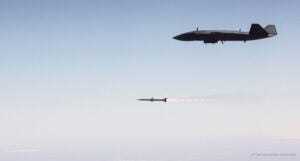
The U.S. Space Force has reached a contract with SpaceX to reuse a Falcon 9 boosters for upcoming Global Positioning System (GPS)-III launches, a first of its kind for National Security Space Launch (NSSL) missions. SpaceX is preparing to launch the fourth GPS III vehicle on Tuesday. This will mark the third time a Falcon 9 carries a GPS III satellite into space; SpaceX launched the third GPS III satellite in June, and the first satellite’s launch in December 2018. SpaceX will attempt to recover…

 By
By 











